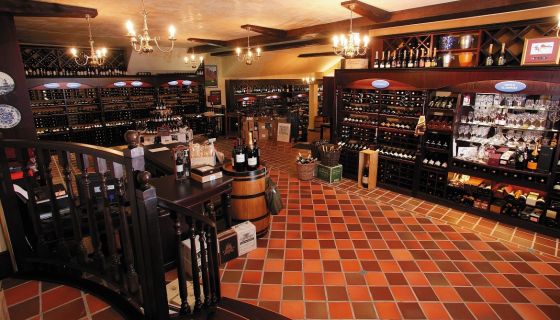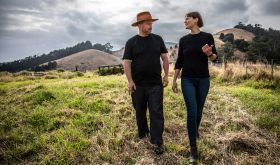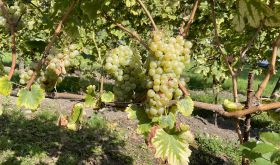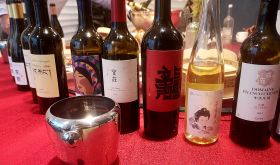It’s a hot, still day in Cape Town, one of those summer days where the wind has given us residents a reprieve. The sky is a startling blue; the land a verdant green from so much winter rain; this is The Mother City in all her peachy glory – a day where the only possible destination is the beach. Luckily, after five weeks of thirsty gazes at the empty white stretches of sand that trim the Atlantic (see Cape faces a sober New Year), we’re finally allowed back onto our beaches.
Last night (1 February) South Africans eagerly gathered around TV screens for what’s become known as the ‘family meeting’, the nation largely anticipating an easing of the throttlehold restrictions that were meant to be in place only until 15 January 2021. The most devastating of these to the wine industry was the third blanket ban on alcohol sales as well as the closing of the country’s world-famous beaches. Both restrictions have wrought calamitous consequences on the wine, hospitality and tourism industries – all three being the lifeblood of the Western Cape.
A glance at the numbers suggests that South Africa is emerging from its second wave of the coronavirus pandemic. Over the past seven days the country saw a steady decline in infections, from an average of more than 10,000 to 5,500. Hospital admissions are also on the decline, averaging now 295 per day.
Because of the declining numbers, President Ramaphosa in his address last night has kept the country on Alert Level 3 with adjusted restrictions:
- The national curfew will now start at 11 pm and end at 4 am. Restaurants and similar entertainment establishments must close at 10 pm to allow patrons to return home in time. The previous curfew was 9 pm to 6 am, a death blow to dinner service.
- Beaches, dams, rivers and lakes are open again.
- The purchase of alcohol is once again allowed but with stipulations in place: until 10 pm (all week) at restaurants and until 6 pm Monday to Thursdays at establishments with liquor licences such as bottle stores. Duty-free shops, registered wineries, wine farms, micro-breweries and micro-distilleries will be restricted to their usual licensed hours.
The relief was so palpable, you could almost feel the country breathing out. Social media exploded with celebrations. We woke up today with our returned freedoms and also to Wines of South Africa (WOSA) announcing that today is the day we celebrate 362 years of winemaking in the fairest of Capes.
Though a look behind the curtain of immediate relief reveals despair. It’s reported that over 70% of restaurants face closure, hotels are on their knees – and the wine industry, now in the middle of harvest in an ironically promising vintage, is bleeding fast.
Reported the generic wine organisation VinPro, ‘Wine businesses have not been able to earn any income from local wine sales for a total of 20 weeks since March 2020, which led to an overall loss of more than eight billion rand in direct sales revenue.’
The partial reopening of local wine sales is of course a lifeline, though a tenuous one, to distressed businesses, but the bans have had their effect – with a long recovery for many, and the end of the road for some.
Winemaker of Blackwater Wines, Francois Haasbroek, recently lamented on Twitter about having to pour a harvest of high-quality Sauvignon Blanc down the drain.
I reached out to him to expand on this. ‘Two big producers pulled the plug on buying the Sauvignon again after several years of doing so, from a grower I work closely with. The producers are stuck with the 2020 vintage in tank and can’t justify taking in grapes. So a year’s worth of grape-growing – and they farm to a pretty exacting standard – results in no home for the fruit. I tried my best to find a taker, even if they sold it at a marginal rate and lose money. Alas no takers: tanks are oversubscribed or limited cash flow can’t allow unplanned purchases. Similarly for a grower in the Swartland with impeccable Chenin grapes. Long story short, it’s a bloodbath out there for growers.’
These stories are, sadly, not unique; many own-label winemakers have simply decided not to produce this year, adding to the already hefty surplus of unwanted grapes.
Working tirelessly to find solutions, managing director of VinPro Rico Basson said, ‘We will continue to turn to government for financial relief to protect the livelihoods of our 533 wineries, 2,778 wine-grape producers and 269,000 employees in the wine industry value chain.’
Regardless, the gauntlet has been laid down – a case of thrice-bitten, it’s time to go to court.
‘We must first ensure that our industry is not again switched on and off nationwide like a light switch by government, regardless of variation in COVID-19 status in the respective provinces’, said Basson. To this end VinPro has continued with the court application that was launched in the Cape High Court on 27 January 2021, seeking relief which would afford the Premier of the Western Cape the power to adopt deviations to enable sale of liquor for both off- and on-site consumption in the province. Similar relief will be sought in the other provinces.
Commented Basson, ‘COVID-19 remains a serious reality that endangers the lives and livelihoods of South Africans. We as an industry are committed to proactively implementing preventative measures from farm level to retail to protect employees, consumers and broader wine industry communities. Furthermore, we will continue to participate in discussions around a risk-adjusted approach to open up the economy even further and ensure that it remains open.’
It’s always sobering to remember the many people whose threatened livelihoods depend on wine. The loss of business in the wine industry directly effects families, many of whom have up to six mouths to feed. The bans have effectively taken away funds from the many organisations, upliftment programmes and NGOs actively working to make a difference in disadvantaged communities. Innocent children bear the brunt of these decisions.
Once you start going down the rabbit hole of the ramifications of South Africa’s 20 weeks of national prohibition, the darker the tunnel seems to get. One glimmer of light is that exports are up, largely thanks to the incredible support from the UK wine community. Thank you from all of us in the Cape Winelands.
I could go on but, as I mentioned, it’s the perfect day to head to the beach – and that’s just what I’m going to do.














